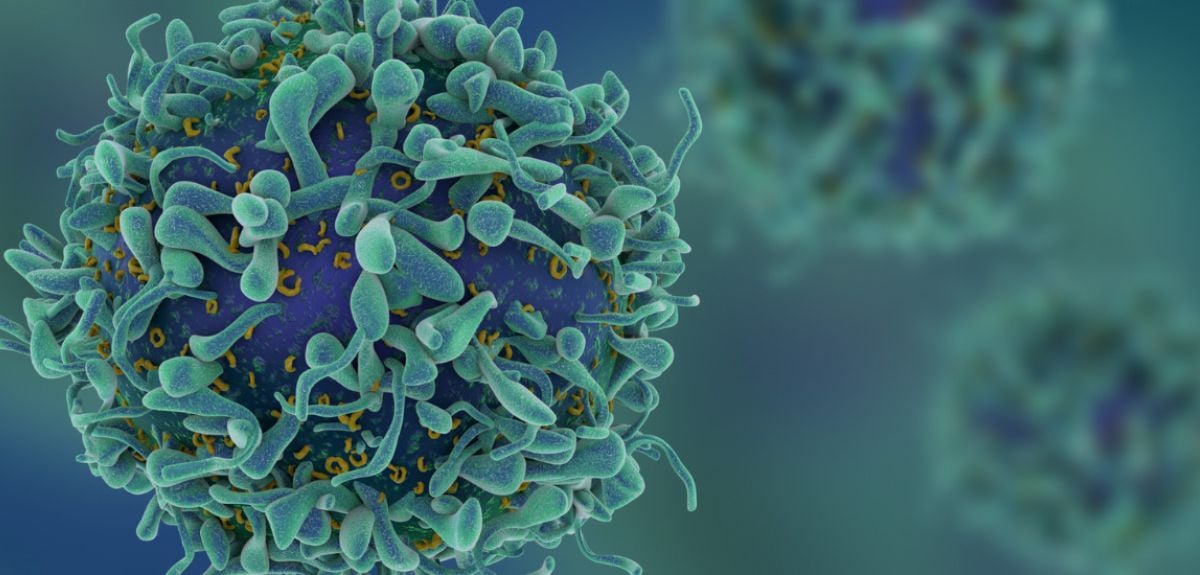
Credit: Shutterstock
New study disentangles a long-standing link between inflammation and cancer progression
A new study published in Nature Genetics led by the Mead Group in the Radcliffe Department of Medicine has demonstrated a previously unknown effect of chronic inflammation on TP53-mutant haematopoietic stem cells.
TP53 (tumour protein 53) is the most frequently mutated gene in human cancers. In this study, the authors investigated the link between an aggressive type of leukaemia and TP53 mutations in haematopoietic stem cells.
Haematopoietic stem cells (HSCs) can differentiate to produce all blood cell types, which is essential for maintaining a healthy blood system. TP53 mutations in HSCs have previously been associated with a cancer progression pathway that leads to the development of acute myeloid leukaemia. Up until now, the mechanisms by which these TP53-mutated blood stem cells expand and give rise to cancer have remained in the dark.
HAEMATOPOIETIC STEM CELLS AND INFLAMMATION
Under normal circumstances, HSCs will differentiate into white blood cells when the body senses inflammation and the white blood cells produced will help to fight the infection. However, this study showed that, in patients with TP53 mutations in their HSCs, inflammation gave rise to selective expansion of TP53-mutant cells, which cannot differentiate normally.
TP53 is also known as the “guardian of the genome” because it ensures that cells don’t carry genetic errors; if they do, TP53 activates a process called programmed cell death and prevents the expansion of damaged stem cells. However, in patients where TP53 is defective, stem cells cannot keep their genomic integrity. In this context, inflammation acts as a storm that depletes normal HSCs from bone marrow, while promoting the expansion of TP53-mutant cells. This eventually leads to an aggressive type of cancer.
UNDERSTANDING HOW HAEMATOPOIETIC STEM CELLS EVOLVE INTO LEUKEMIC CELLS
In this study, led by Dr Alba Rodriguez-Meira, Professor Adam Mead (MRC MHU) and Dr Iléana Antony-Debré (Inserm), the authors applied a method previously developed in the Mead group to study the genetic defects and the genes that are active in each single cell (transcriptome). This method, named TARGET-seq, allowed them to distinguish with high resolution the HSCs that carried a TP53 mutation, and how they behaved during a patient’s progression.
The researchers analysed cells donated by patients and discovered that the TP53-mutant cells from patients more likely to develop leukaemia showed activation of genes related to inflammatory processes. Using mice, the authors then confirmed that cells carrying TP53 mutations increased in number when mice were subjected to inflammation.
Next, the authors examined the typical effect of inflammation in normal and mutant HSCs. They found that TP53-mutant cells generated fewer white blood cells and were also resistant to cell death, which is typically induced by inflammation. This allowed the mutant HSCs to ‘win the race’ and therefore caused the number of TP53-mutant cells in the blood to expand.
This study also investigated how well blood stem cells could keep their genomic integrity when they received an inflammatory stimulus. The authors discovered that TP53 mutations changed how the cells responded to damage in their genetic code, making them unable to repair genetic errors efficiently. Some of these genetic errors were helping them grow even faster and contributing to cancer development.
Dr Alba Rodriguez-Meira, one of the paper’s co-first authors, said: 'Overall, these findings offer valuable insights into how genetic defects and inflammation interact in the development of blood cancer. Importantly, this study could pave the way for better methods of early detection and new treatments for TP53-mutant leukaemia and many other cancer types, improving outcomes for cancer patients.'
Professor Adam Mead, said: 'I am really proud of this work which illustrates how cutting-edge single-cell techniques can provide novel insights into human disease. The connection between inflammation and genetic evolution in cancer has broad implications and the challenge is now to determine how we might intervene in this process to more effectively treat, or even prevent the inflammation associated with cancer progression. I would like to thank the patients who donated samples to support this research at a very difficult time in their lives and also all coauthors and our funders, particularly CRUK and MRC.'
 Oxford Humanities team delivers framework for tackling modern slavery and human trafficking
Oxford Humanities team delivers framework for tackling modern slavery and human trafficking
 Nearly 500,000 children could die from AIDS-related causes by 2030 without stable PEPFAR programmes, Oxford experts estimate
Nearly 500,000 children could die from AIDS-related causes by 2030 without stable PEPFAR programmes, Oxford experts estimate
 Expert Comment: Why has Trump launched so many tariffs and will it cause a recession?
Expert Comment: Why has Trump launched so many tariffs and will it cause a recession?